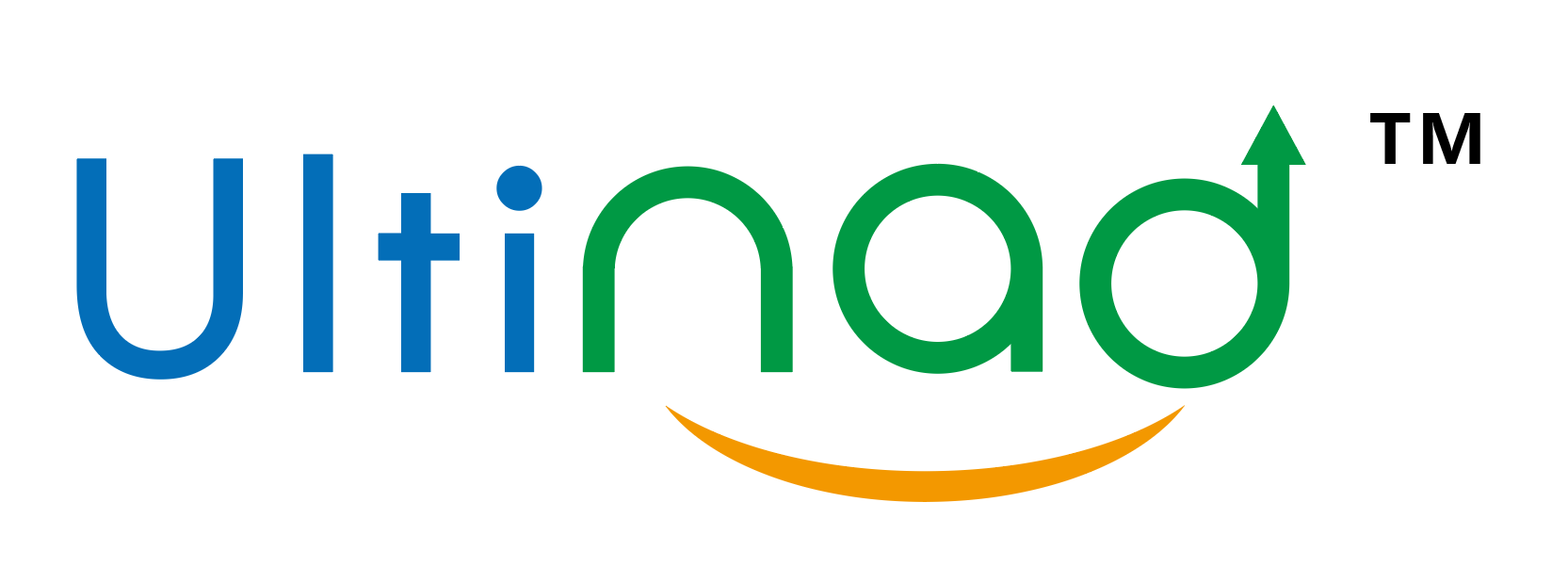NADH
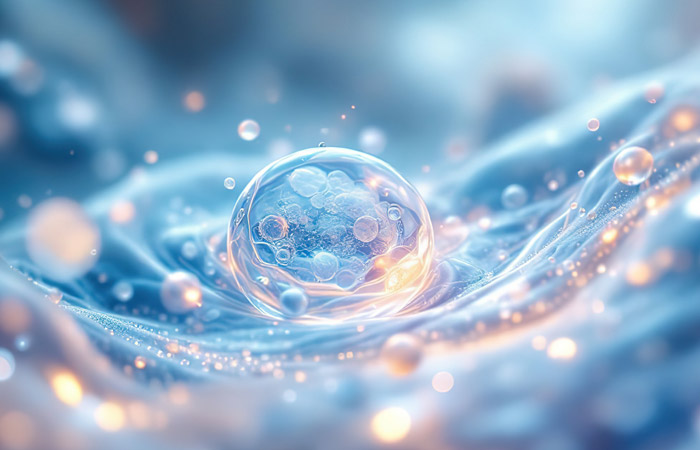
What is NADH?
NADH is reduced nicotinamide adenine dinucleotide, which is a crucial coenzyme in cells. It is formed when NAD+ accepts a hydrogen atom and two electrons. NADH plays a key role in cellular respiration, carrying high-energy electrons to the electron transport chain to generate ATP, the cell's energy currency, thus facilitating energy production. Common salt of NADH is disodium salt NADH-2Na.
Structure
Chemical Name: Reduced β-Nicotinamide Adenine Dinucleotide Disodium Salt.
Molecular Weight: 709.41
Molecular Formula: C21H27N7Na2O14P2
CAS No.: 606-68-8

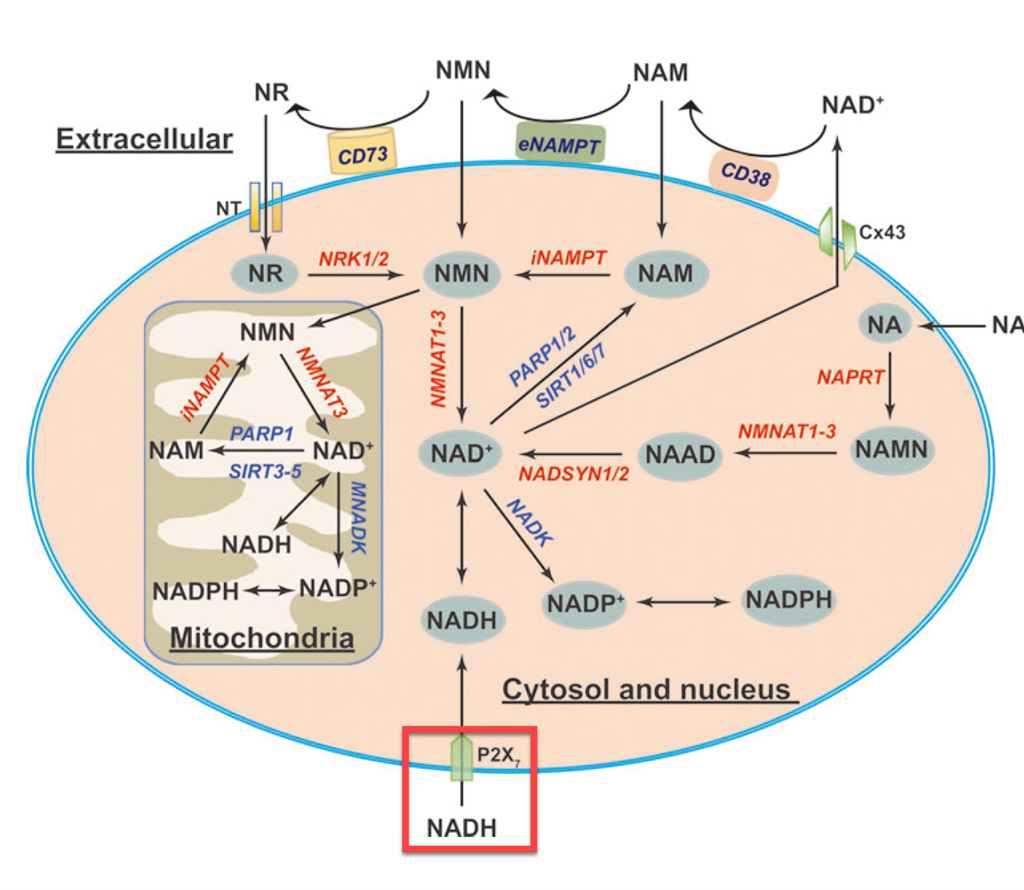
Bioavailability
Comparison NAD+ that cannot be transported across cell membranes, exogenous NADH can directly penetrate cell membranes. It is transported across astrocyte membranes through a P2X7 receptor-mediated endocytosis mechanism. After treating astrocytes with NADH, both intracellular NADH and NAD+ levels increase.
Crystal Form
Because of the poor stability, NADH is easy to decompose, and the need for storage at around -18°C, the application of NADH is limited.
Our company developed a stable crystal form NADH disodium salt and submitted a patent for the crystal form of NADH disodium salt and its preparation method to the China Patent Office, with the patent number ZL2024116315931. This crystal form has the advantages of good stability, good moisture resistance, and a simple preparation method.
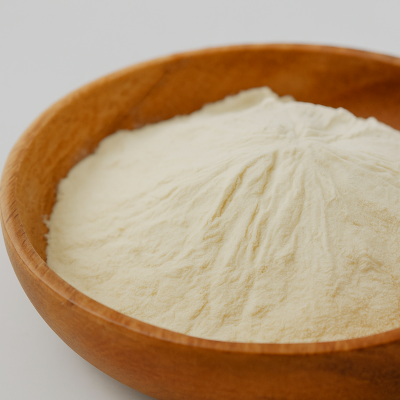
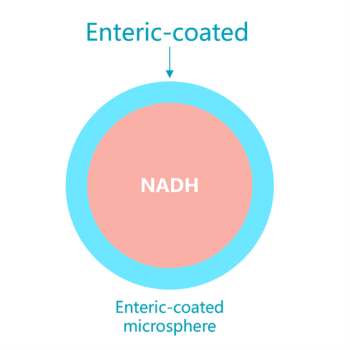
Formulations
NADH may not stable under stomach acidic conditions. We plan to develop the following NADH formulations and formulate NADH into enteric-coated microspheres. The enteric layer is made of special polymer materials, does not dissolve in the acidic environment of the stomach but can dissolve or disintegrate in the neutral or weakly alkaline environment of the intestines, thereby enabling the drug to be released in the intestines.
Application of NADH
NADH is utilized in dietary supplements aimed at enhancing energy metabolism and cognitive function.
NADH supplementation has shown potential in improving cognitive performance in individuals with neurodegenerative conditions like Alzheimer's disease.
As a coenzyme in cellular respiration, NADH plays a crucial role in ATP production, thereby supporting overall energy levels.
Enhancing NAD⁺ levels through NADH supplementation may offer therapeutic benefits for cardiovascular diseases by improving mitochondrial function and reducing inflammation.
- 4th floor, building 16, 199 Guangfulin East Road, Songjiang District, Shanghai
- 021-67898561
- zhaonan@greenanew.com
Copyright © 2025 Hot Wheels (Shanghai) Biotechnology Co., Ltd All Rights Reserved.
